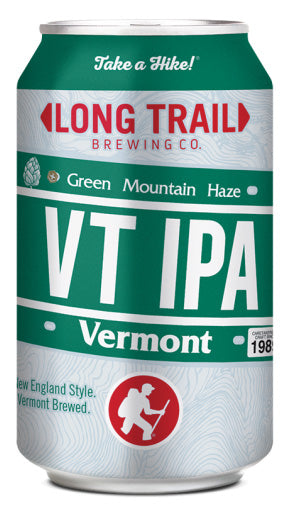×

Your Cart Needs Attention
You already have a product in your cart. Before adding a new one, please choose an option:
Long Trail VT IPA
India Pale Ale (IPA)
Alc.: 6.0%
Volume: 473mL
Retail $8.49
Couldn't load pickup availability

Profile
Smell
Ripe tangerine, fresh mango, pineapple, hints of grapefruit.
Taste
The taste is reflective of the nose, its all-juicy fruit combined with some neutral toasted notes, and hints of floral. Its bright and pleasing, with a full mouthfeel and crisp finish. Some pine peeks out combined with some bitterness.
Pairing
Italian sausage on a bun, Arancini, citrus marinated snapper.
Sight
Golden core with orange flecks.
SRM 6
Hazy IPA
IBU 30
Citra, Amarillo
Flaked Oats, Munich Malt
stein
Description
Long Trail was founded by Andy Pherson in 1989, in the basement of the Bridgewater Wollen Mill. The brewery came in at a good time, there wasn’t any competition, its maple syrup production was more famous. But Andy, had the inspiration to create affordable beers that would compete with the expensive German and English beers that were lining the shelves of liquor stores back then. It was originally known as Mountain Brewers, the company changed its name to Long Trail Brewing Company after they relocated to Bridgewater Corners, Vermont. Long Trail grew large under the ownership of Fulham and Co., a private equity firm, before being sold in 2022 to Harpoon Brewery. The brewery is located along the banks of the Ottaquechee River in the heart of the Green Mountains, and not only has a brewery facility but also a visitor center, farmhouse pilot brewery and wastewater treatment facility. The brewery makes many different styles of beer, but are best known for their Düsseldorf-style Altbier. It was the 273-mile hiking trail that traverses through the Green Mountains that inspired the name of the brewery. Long Trail takes the impact of brewing on the environment very seriously. They are deeply committed to sustainable practices like giving spent grains to local dairy cattle, and using steam from the brewing process to save propane and recycling their water.



